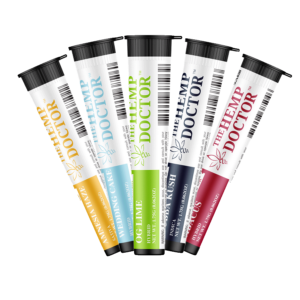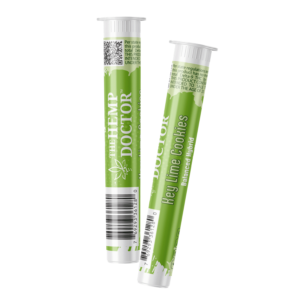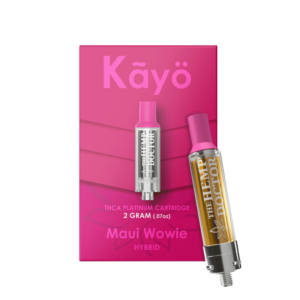In New York, there are about 2,000 rogue cannabis shops with only 85 licensed dispensaries. Also, it’s important to note that the state currently dedicates 50% of its licenses to those disproportionately impacted by cannabis prohibition in New York.
The steps to opening a dispensary in New York are challenging because of the state’s nascent cannabis licensing process and unpredictable opening for licensing spots. However, if you’re a store owner looking to legitimize the business and take advantage of the New York Social and Economic Equity Plan, it might be worth looking into how to open a dispensary in New York.
Step-By-Step Guide: From Business Planning to Store Opening
To ensure a smooth licensing application transaction in New York, you must first finalize the important aspects of your business. These include completing the details of your business plan, securing funding, etc.
Complete each task in the correct and practical order by following this step-by-step guide:
Step 1: Craft a Business Plan
A comprehensive business plan that outlines your vision, target market, operations, financial projections, and marketing strategies is indispensable. It guides your operations and is crucial when you’re in the process of seeking funding, partnerships, and a cannabis retail license.
Ensure your plan demonstrates a deep understanding of the cannabis industry, regulatory compliance, and how your dispensary will meet the needs of your target customers.
Here is an example of what sections go into a business plan:
- Executive summary
- Company missions and vision
- Owner and employee structure
- Market research
- Competitor analysis
- Product and service description
- Potential inventory suppliers
- Diversity and equity plans
- Store location
- Security plan
- Marketing and sales strategies
- Funding
Step 2. Form Your Business Entity
You need to form a business entity to continue with the process of opening a dispensary in New York. It’s a basic requirement for leasing, hiring, partnering with wholesalers, insurance coverage, etc. New York requires cannabis businesses to have specific insurance coverage, so make sure you have a business entity to apply for insurance.
The state of New York only gives licenses to the following types of cannabis businesses:
- Adult-use cultivator
- Adult-use nursery
- Adult-use processor
- Adult-use distributor
- Adult-use cooperative
- Adult-use micro business
- Adult-use retail dispensary
- Adult-use on-site consumption
- Adult-use delivery
- Registered organization adult-use cultivator processor distributor retail dispensary
- Registered organization adult-use cultivator processor distributor
If you’re entirely clueless about filing for a business entity, hire a lawyer to guide you throughout the process. They will make sure your chosen business structure aligns with your business intentions and future dealings.
Step 3. Find Your Store’s Location
Location can make or break a dispensary. It’s one of the most challenging steps in opening a dispensary because you have to ensure several things at once, like parking space, compliance, ample foot traffic, and being far from school zones.
Another important thing to note is not all municipalities and areas in New York allow cannabis-based establishments. So far, 752 out of 1,520 municipalities have decided not to allow dispensaries within their areas. Meanwhile, 877 municipalities refused on-site consumption of weed. See the full list here.
Once you have chosen your location and drafted a site plan, these will have to be approved by the local office. To help fatten your chance for approval, here are the minimum local zoning laws to follow:
- Accessible from the street level
- Located on a public road suitable for conducting business
- Not on the same road 500 feet from school grounds and community facilities
- Not on the same road 200 feet from a house of worship
- Not within a certain distance from other dispensaries
Step 4. Document Your Site and Operating Plans
This step is unique to applying for a license to operate a cannabis business in New York. This documentation is different from the usual business plan or location layout. A dispensary site plan and operating site plan is a thorough documentation of the following:
Dispensary Site Plan:
- Physical location of the store
- Intended activities or purpose of the different parts of your dispensary
- A clear image of the property, physical boundaries, edges, roads, and water crossing
- Location of sanitation facilities
- Size and dimension of all areas
- Entrance and exits, including emergency exits
- Outdoor signage
- Picture or proof that your dispensary follows the site plan
Operating Plan Includes the Following Written Procedures:
- Prevention of theft and loss of cannabis products
- Ensuring restricted areas remain restricted to unauthorized individuals
- Prevention of loitering
- Handling, storing, and transporting cash
- Monitoring and tracking of quality assurance complaints
- Identification of workforce training annually
- Maintenance of an alcohol-free, drug-free, and smoke-free workplace (exemption: smoking and vaping within a designated spot)
- Management of hazardous waste disposal
- Management of disposal and recycling of waste in a manner demonstrating the best practices
- Selling cannabis to consumers under compliance
- Blocking the sale of cannabis to consumers who have health risks
- Any of the other procedures the Office determined
- Access of persons with disability to the dispensary
- Compliance with the local law, including noise, odor, and use of the sidewalk
- Compliant delivery of cannabis products
- An employee handbook that includes the following information:
- Clearly defines the roles and responsibilities of each employee when it comes to implementing operating plan procedures.
- Protection of employees for safer cannabis product consumption
- Shutdown and emergency procedures
- Inventory tracking procedures
- Consent for investigations and inspections
- Access to the current laws, rules, and regulations
- A list of full names of employees (including ID number and other unique identifier) authorized to access surveillance
Step 5. Determine Capital and Operational Costs
As your business details come into focus, you will gradually identify aspects of your dispensary that require financial attention. Here are most of them with an average cost unique to putting a business in New York:
Real Estate = $1,000 monthly
Renovation expenses, ongoing rent, mortgage, and downpayment. The average cost of renting out a small retail space in New York is $1,000 monthly, plus renovation expenses and downpayment.
Licensing = $8,000 and $7,000 for the bi-annual renewal
Application fee ($1,000), licensing fee ($7,000), and bi-annual renewal ($7,000)
Operational cost = $5,000 monthly
Ongoing costs of running a dispensary, such as utility bills, etc.
Salary = $25,000 monthly
Benefits, salaries, taxes, etc.
Hardware = $2,000 monthly
Fixtures, security, technology, software, furniture, etc.
Inventory = $1,500 per pound
Cannabis products
The breakdown of costs would be most likely segmented like the pie graph below:

New York is one of the most expensive states in which to establish a dispensary. As a store owner, you need an upfront budget of $400,000 up to $1 Million or more, depending on the size of your proposed business.
Step 5. Secure Financing
Obtaining funding for a cannabis business in any state is challenging. Financial institutions’ extra caution in lending to or partnering with weed businesses comes with the territory. It’s still possible to secure a significant amount of financing. Here are your options:
- Self-funding: The fastest way to get cash, but the risk would be 100% on you.
- Family and friends: Another quick way of acquiring capital as a connection is already present.
- Partners: Active contributors to executive business decisions or silent partners.
- Loans: Small banks are the most likely to lend to businesses dabbling in the weed industry. However, given their limited number, some take advantage by increasing interest rates.
- Private funds: Examples of private funding include angel investors, private equity, and venture capital.
- Crowdfunding: A type of fundraising that seeks the public’s help through online crowdfunding platforms.
Step 6. Licensing Application Proper
| Important Note: The application window for cannabis licensing is currently closed as of June 2024. The Office is set to reopen soon. Check https://cannabis.ny.gov/licensing regularly for updates. |
Before creating an account at https://www.ny.gov/, here are critical pieces of information first-time dispensary owners should be aware of:
- You need a dispensary license to run a cannabis store or any type of weed business in New York.
- You can’t have a cultivation and retail adult-use license simultaneously.
- The Conditional Adult-Use Retail Dispensary License (CAURD) has been closed since September 2023. Licensing has shifted to standard license applications.
- The list of required documents for applying for a cannabis license is quite extensive. You must submit a copy of a business plan, lease agreement, and a written plan for security, packaging, delivery, etc.
- Small businesses are eligible for a microbusiness license.
- If you’ve been affected by the way on drugs, you may be eligible for New York’s social equity program.
Follow the steps below to obtain a dispensary license online as soon as the licensing application opens:
A. Create an account with https://www.ny.gov/
B. Provide the following information:
| Identity of the Applicant | |
| If an individual: | If an entity: |
| Name Date of birth Spouse or domestic partner Social security number Contact information Other aliases Any other information the Office may require | Name The principal address of the business Contact information Information on any internet platform, including websites, social media, etc. State or country of incorporation Contact information of the person upon whom service shall be made Federal employer identification number Ownership interest percentages Other names the business is known for Any other information the Office may require |
| Ownership and Financial Disclosures | |
| Ownership interest or any other interest A list of parent companies, subsidiaries, predecessors, and successors Copies of organizational and business formation documents All contracts, term sheets, and agreements between the applicant and a goods or service supplier Capitalization tablets Copy of the ownership structure Financial statements and tax documents of the most recent fiscal year Information about other licenses or authorization to operate held by the applicant Details of any administrative proceeding in any jurisdiction Business continuity plan Certificate of good standing issued by the governing state List of charitable contributions exceeding $5,000 annually A copy of the labor peace agreement Any other information the Office may require | |
| History of Legal Proceedings | |
| History of criminal records, legal proceedings, closed legal actions, bankruptcies, and tax delinquencies for the past ten years. Evidence of good moral character Any other information the Office may require | |
| Detail of the Physical Business Location | |
| Premises details Landlord information Address Drawings Floor plans The intention of business for the space Whether leased or owned A statement indicating that the layout and location don’t, in any way, violate the NY Cannabis Law. A statement of accomplishment of all municipality requirements A copy of the certificate of occupancy Copies of deeds, leases, rental agreements, or option contracts Documentation of the ability to obtain insurance Any other information the Office may require | |
C. Submit the requirements asked above, along with the $1,000 application fee for the retail license, and wait for the board to review your application.
D. Once your application is approved, you’ll receive the provisional license and pay the $7,000 license fee in full.
Step 7. Layout the Inside of the Dispensary
Before advancing to the layout stage, here are some important requirements that New York requires cannabis store owners to observe.
A. Vending machines that sell cannabis products are not allowed inside or outside the premises of the retail dispensary.
B. Display samples can’t be consumed or taken out of the dispensary.
C. Cannabis items, except for samples, can’t be touched. They should be locked behind a counter or barrier.
D. Clearly communicate the price of the items by placing a price tag, sign, or placard.
E. Licensees can’t advertise discounts, loyalty programs, and similar wordings implying “discounts” or “free.”
F. Retail dispensaries must be physical brick-and-mortar stores.
G. Store owners may install drive-thru windows, express lanes, or similar fixtures with the Office’s written approval.
H. The store’s interior should always be orderly, even during rush hours.
I. Commercial movements must only be active during operational hours except for customers ordering online.
J. 2:00 AM to 8:00 AM are non-operational hours unless the municipality gives a written consent.
K. Licensees should display the following information inside their stores:
- Dispensary license
- Operating hours
- “Consuming cannabis is not allowed on this premises.”
- “Cannabis can impair concentration, coordination, and judgment. Do not operate a vehicle or machinery under the influence of cannabis.”
- “Using cannabis, in any form, while you are pregnant or chest/breastfeeding passes THC to your baby and may be harmful to your baby. There is no known safe amount of cannabis use during pregnancy or while chest/breastfeeding.”
- “Adult-use cannabis products are for use only by persons 21 years and older. KEEP OUT OF REACH OF CHILDREN AND PETS.”
Here’s what you need to detail when drafting a layout of your dispensary:
- The customer’s accessibility to the parts of the dispensary, like the payment area
- Cashier’s area
- Product display area
- Parking space
- Entrance and exits
- Security of your store’s entrance
- Waiting rooms
- Bathroom
- Inventory area
- Staff area
Step 8. Secure Your Cannabis Store According to New York’s Dispensary Security Regulations
The following security measures are meant to prevent the theft of cannabis items and money. They are also put in place to keep employees and the public safe:
A. Create a security plan or system that accomplishes the following:
- Keep out people who aren’t allowed in certain spots of the dispensary
- Keep everyone safe
- Prevent theft in general
- Security locking systems of doors and windows
- Safety of keeping and handling money
B. Interior and exterior should have proper lighting to make the surveillance records clear
C. Remove significant blockages like trees, large plants, or giant ornaments
D. Maintain employee and visitor logging system
E. Installment of perimeter alarm
F. Install surveillance cameras in all areas where cannabis products are stored, including entrance and exit points, parking lots, sales areas, and where the money is kept.
G. Failure alerts within five minutes in case the security system fails.
H. Locks and security equipment are tested monthly.
Step 9. Hire Your Staff
An average dispensary is handled by a team comprised of the following roles:
- Employee in Charge or supervisor (should be at least 21 years old)
- Budtenders
- Cannabis sales associates
- Security
- Inventory person
- Compliance Specialist
| 🗒️ Note: All dispensary employees must be 18 years old and over. However, only those who are at least 21 years old are allowed direct interaction with customers and help with the delivery of cannabis products. |
Here are mandates you need to consider in hiring and retaining staff under New York law:
A. Store owners are responsible for employee actions and ensure proper staff training.
B. Employees must have a supervisor.
C. Employees should have a training manual that includes the following information:
- Safety and security procedures
- Ingress and egress procedures
- Dealing with customers
- Selling and ordering process
- Emergency procedures
- Prevention of risky and illegal cannabis sales and activities
D. Employees should have ample knowledge about the cannabis products they sell.
E. Employees should be trained based on their employee manual. It can happen during their employment.
Step 10. Review New York’s Dispensary Laws
Non-compliance with New York’s dispensary law can be grounds for fines or suspension of your cannabis license. To stay compliant, review the general compliance laws in New York for dispensaries:
- You can’t sell to individuals under the age of 21.
- Valid IDs and other proof of age are required.
- Customers can only purchase a maximum of 3 ounces of cannabis flower and 24 grams of concentrated cannabis daily.
- You are required to install a Seed-to-Sale tracking system called Biotrack.
- You are required to maintain and submit updated records of the Seed-to-Sale tracking system.
Step 11. Order Inventory
Under New York dispensary law, vertical integration is not permitted. Hence, you need to partner with cannabis farmers, wholesale sellers, distributors, and manufacturers to stock up your inventory.
Here are the only cannabis items businesses in New York can sell:
- Cannabis products from a distributor
- Cannabinoid hemp products
- Paraphernalia
- Minor incidentals
- Branded merchandise
Item dispensaries are not allowed to sell:
- Non-cannabis food and beverage, except water
- Tobacco or products with nicotine
- Products with attractive packaging for minors
- Merchandise of other brands
Step 12. Store and Maintain Inventory According to New York’s Dispensary Rules
Now that your inventory is stocked, you need to develop systems and procedures for intaking and auditing inventory that align with state law.
The OCM (Office of Cannabis Management) requires you to:
- Conduct a monthly audit of your inventory.
- Notify the OCM of discrepancies in your inventory audit within 24 hours after the discovery.
- Inventory should be stored in a secure and locked vault.
- Access to inventory storage areas shall be restricted to authorized employees only.
Step 13. Order Dispensary Hardware & Software
Elevate user experience in your dispensary by purchasing the following hardware and software systems:
- Wifi
- Printers
- TV Screens
- Cash drawers
- Computers
- Barcode scanners
- Kiosks
- CRM
- Payroll system
- Accounting tools
- Marketing tools
- Website
Step 15. Device a Marketing Plan
New York’s regulations around advertising and marketing are as follows:
| Rule | Details |
| Advertising Materials | Billboards, flyers, online posts, and similar advertising materials should include a disclaimer stating the risk of marijuana to health. |
| Appeal Factor | Advertisements and other forms of branding should not appeal to minors or show any form of marijuana consumption. |
| Recording of Personal Customer Information | Budtender and the dispensary can’t acquire or record personal customer information without consent unless the information is required to complete the sale. |
| Misrepresentation | Adult-use cannabis businesses must not represent or add color to their branding that pertains to “medical cannabis,” “drugstore,” “pharmacy,” and the like. |
| Educational Materials | User guides should not make specific health claims. |
| Donation | Licensees are restricted from giving away cannabis products. |
| Advertisements with “giveaway” tones | Licensees can’t advertise discounts, loyalty programs, and similar wordings implying “discounts” or “free.” |
Final Thoughts
As you wrap up this guide on how to open a dispensary in New York, remember that success in this industry is not just about navigating the legal labyrinth or crafting the perfect business plan. It’s about creating a dispensary that stands out for its quality, compliance, and commitment to the community.
Venture forth with determination and partner with excellent, 100% legal cannabis suppliers like The Hemp Doctor Wholesale. With 15 years of industry experience and hundreds of innovative products, we’re the missing puzzle to the next New York-based dispensary superstar.
| Disclaimer: We always strive to provide factual and updated information, but this blog is not meant to provide legal advice. Always consult with a lawyer or relevant professional who can help you understand the legal nuances of opening a dispensary in New York. |
FAQs
How much does it cost to open a dispensary in New York?
The upfront cost of opening a dispensary in New York ranges from $400,000 to $1 Million, but this isn’t fixed. The cost depends on the size of the proposed business.
Can you own a dispensary in New York?
Yes. However, the cannabis licensing program is currently closed.
How do I get a dispensary license in NY?
Go through the OCM’s licensing application process.
How much do dispensaries make in New York?
Between $100,000 and $500,000 per year on average.
How much is a grower’s license in NY?
$2,000







